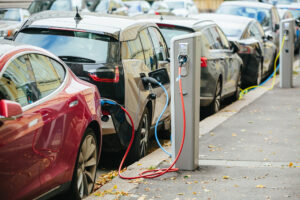
The increase in the production and sales of all-electric vehicles has strong financial benefits, both in tax incentives and savings, as owners don’t have to buy gasoline. However, the threat that electric vehicles may pose to oil companies is not only a challenge to the marketplace. It is a strong concern to government entities.
Gasoline taxes are folded into every gallon of gas sold and are shared by federal, state, and local sources. The income from these taxes covers transportation infrastructure costs and general-fund expenses. In many cases, sales taxes fall within the top-five revenue sources for county governments, with taxes on gasoline making up a sizable portion of a county’s sales-tax revenue.
The dilemma rests on how dependent local governments are on gas sales-tax receipts. What happens when less gasoline is consumed, as more vehicles run on rechargeable batteries year over year? This doesn’t change the imbedded infrastructure costs to build and maintain roads, bridges, and tunnels. All-electric and hybrid vehicles still account for wear and tear on our roads and streets.
The answer might be found in a recent legislative proposal in the state of Ohio. Under this proposed legislation, an owner of an electric vehicle would be charged a higher annual registration fee to make up for not paying gasoline taxes. If this proposal becomes law, Ohio owners will pay $200 per year to register their all-electric vehicles; hybrid owners would pay $100. Part of this additional revenue would go toward updating the state’s power grid as a result of higher electric demand.

No matter what means is finally taken on a state-by-state basis, you can be sure that government entities will be seeking ways for owners of hybrid and electric-only vehicles to pay their fair share in taxes.
Just as the “green-minded” public wants to save money and help reduce emission gases, government entities will be seeking workable ways to generate revenue to compensate for gas-tax losses.
I’d like to urge public officials to think differently on this and work with resources one has before looking to levy new taxes.
A majority of public entities today are sitting on cash that has great value and that can be a new source of revenue. The desire to put cash to work is often a low priority, either due to lack of resources or the expectation that cash needs to be close at hand in case of unexpected expenditures.
The point I want to stress is that all cash has significant value in the marketplace—and that can lead to unexpected revenue. At three+one®, we can show you the true value of all your cash through our proprietary liquidity analysis and data. We’ve helped entities across the country see six- or even seven-figure increases in annual interest earnings.
Before creating additional taxes on the public you serve, look to put a new charge into the value of your taxpayers’ money.
The results can be electrifying.


